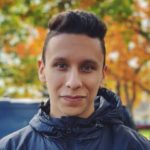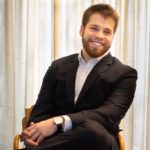File: Download
Date of Publication: June, 2019
Year of Publication: 2019
Publisher: The Millennium Alliance for Humanity and the Biosphere
The MAHB’s June Newlsetter featured student perspectives from three different universities. All students are taking courses related to sustainability and systems thinking. Read more about their course work and the professor’s leading this change in the newsletter.
Below we want to highlight the student’s full reflections. We appreciate all of the student’s feedback and the time they took to share more about their experiences with the MAHB.
Intellectual and personal development is a lifelong process. We find inspiration from these student’s reaction to the courses featured in this newsletter. Perhaps one of the single most important things we can do is inspire and empower younger generations to be well equipped problem solvers.
 If there were ever a worthy crusade to join, Reality 101 would be it. As if the world were not cultish enough, this class simultaneously deconstructed mental/social barriers, while building a space where my thoughts believe they could be housed. After experiencing this synthesis, imagining what life was like before seemed ridiculously narrow. And yet the irony lies therein, for the Reality 101 mindset is basically esoteric and once filled with this knowledge, one is trapped in a vastly clearer but debatably smaller school of thought. Which is precisely why more classes like this should be taught. When I say smaller, I mean smaller in the sense that not enough are privileged to have exposure to this great interdisciplinary approach. Education has become so specialized that the individual upon graduation, is thrust into a complex system and expected to have a widespread impact. But how? Reality 101 provides a framework with systems thinking and a combination of topics that sheds a different light on the world, from an environmental, economic, and human standpoint. Equipped with a more ecological mindset rooted in physical elements, I am able to better understand the dynamics at play on the political and social front. Intersectionality is integral to tackling this century and beyond’s questions and Reality 101 provided an illuminating start. Priscilla Trinh- University of Minnesota, Realty 101 with Professor Nate Hagens
If there were ever a worthy crusade to join, Reality 101 would be it. As if the world were not cultish enough, this class simultaneously deconstructed mental/social barriers, while building a space where my thoughts believe they could be housed. After experiencing this synthesis, imagining what life was like before seemed ridiculously narrow. And yet the irony lies therein, for the Reality 101 mindset is basically esoteric and once filled with this knowledge, one is trapped in a vastly clearer but debatably smaller school of thought. Which is precisely why more classes like this should be taught. When I say smaller, I mean smaller in the sense that not enough are privileged to have exposure to this great interdisciplinary approach. Education has become so specialized that the individual upon graduation, is thrust into a complex system and expected to have a widespread impact. But how? Reality 101 provides a framework with systems thinking and a combination of topics that sheds a different light on the world, from an environmental, economic, and human standpoint. Equipped with a more ecological mindset rooted in physical elements, I am able to better understand the dynamics at play on the political and social front. Intersectionality is integral to tackling this century and beyond’s questions and Reality 101 provided an illuminating start. Priscilla Trinh- University of Minnesota, Realty 101 with Professor Nate Hagens
Before taking “Western Civilization and Sustainability” with Professor Petersen, I believed that climate change was an explicitly material problem. As an economics major, more carbon in the atmosphere simply meant more devastating wildfires in California and harsher hurricanes in the Caribbean. While these disasters undoubtedly threatened countless communities, they were ultimately a function of emissions and could be addressed through bold policy prescriptions. From this position, I was perplexed when Professor Petersen began a class with a discussion of a borderless garden St. Francis kept in the 13th century. Free from the cold language of cap and trade, the Catholic friar commanded that the edges of his garden remain undug so that all who came across it could revel in the “memory of eternal sweetness.” For Francis, the natural world was an extension of God, and to seek to own it, was to cordon off the beauty of the divine from all humankind. With this striking image, Professor Petersen made clear that our 21st-century conundrum was not merely a question of public policy or even political will, but instead an age-old question: how can we live morally with one another on a planet with finite resources? Or more specifically, how can we animate intersubjective orientations toward ethical responsibility in times of global crisis? Ultimately, Professor Petersen taught me that answering such a difficult question requires the full canon of human experience — the corporeal, the intellectual, and the spiritual. — Ilan Palacios Avineri, Economics and History double major (‘19); incoming History PhD student at University Texas Austin, interested in Religion, Ethics, and Politics in Cold War Central America
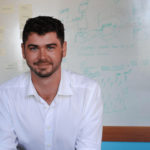 There are few people or classes who genuinely change the way you perceive the world in college, and much fewer that make you view the world in such a novel way that you’re compelled to live differently. Wendy Petersen was one of those people, and her “Western Civilization & Sustainability” class at Willamette University was certainly one of those courses. Engaging classic texts such as the Thucydides, Plato, and Thomas More’s Utopia, Professor Petersen made me consider my core values, why I might uphold certain ethics, but most importantly, how I can think about applying those ways of thinking to the way I act, consume, and exist in the world. Her classes presented a clearer picture of what the ecological changes underway worldwide will require of all humans, and it was a picture with an imperative: we can no longer solely think differently about the issues we face, we must in fact become different to face them. – Matt Tschirgi, History major (‘16); currently a sales and marketing professional working with organizations to improve sustainability in real estate in the San Francisco Bay Area, California.
There are few people or classes who genuinely change the way you perceive the world in college, and much fewer that make you view the world in such a novel way that you’re compelled to live differently. Wendy Petersen was one of those people, and her “Western Civilization & Sustainability” class at Willamette University was certainly one of those courses. Engaging classic texts such as the Thucydides, Plato, and Thomas More’s Utopia, Professor Petersen made me consider my core values, why I might uphold certain ethics, but most importantly, how I can think about applying those ways of thinking to the way I act, consume, and exist in the world. Her classes presented a clearer picture of what the ecological changes underway worldwide will require of all humans, and it was a picture with an imperative: we can no longer solely think differently about the issues we face, we must in fact become different to face them. – Matt Tschirgi, History major (‘16); currently a sales and marketing professional working with organizations to improve sustainability in real estate in the San Francisco Bay Area, California.
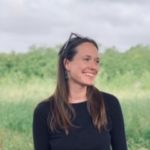 My coursework during my time at Willamette University was nothing short of remarkable. In particular, professor Petersen’s knack for incorporating aspects of sustainability into her pedagogical approach for each and every one of her humanities classes was the most inspiring and refreshing aspect of my liberal arts education. As a social studies teacher, I am constantly faced with explaining the reasons why studying history is so important given the current environmental, political, and social climate. My knowledge acquired on this topic with professor Petersen and others at Willamette allows me to use teaching not only as a platform for presenting the unprecedented challenges we collectively face as a society with regards to the environment, but also as a way to engage students in the depth, complexity, and urgency that come with these problems. After providing my students with an education rooted in a fundamental understanding of these issues at hand, I work hard to create meaningful discussions, projects, and assessments that meet these challenges with new ideas and draw on academic and cultural ideas rooted in a scientific understanding of Earth’s systems in order to develop an optimistic and realistic attitude towards their future. It is only after reflecting back on my own history of education grounded in sustainable pedagogy that I realize its place as the driving force that guides my teaching trajectory today. –Montana Miller, History and Environmental Science double major (‘16); currently working as a social studies teacher and on a small, coastal farm and earning her Master’s in Teaching at University of San Francisco, California.
My coursework during my time at Willamette University was nothing short of remarkable. In particular, professor Petersen’s knack for incorporating aspects of sustainability into her pedagogical approach for each and every one of her humanities classes was the most inspiring and refreshing aspect of my liberal arts education. As a social studies teacher, I am constantly faced with explaining the reasons why studying history is so important given the current environmental, political, and social climate. My knowledge acquired on this topic with professor Petersen and others at Willamette allows me to use teaching not only as a platform for presenting the unprecedented challenges we collectively face as a society with regards to the environment, but also as a way to engage students in the depth, complexity, and urgency that come with these problems. After providing my students with an education rooted in a fundamental understanding of these issues at hand, I work hard to create meaningful discussions, projects, and assessments that meet these challenges with new ideas and draw on academic and cultural ideas rooted in a scientific understanding of Earth’s systems in order to develop an optimistic and realistic attitude towards their future. It is only after reflecting back on my own history of education grounded in sustainable pedagogy that I realize its place as the driving force that guides my teaching trajectory today. –Montana Miller, History and Environmental Science double major (‘16); currently working as a social studies teacher and on a small, coastal farm and earning her Master’s in Teaching at University of San Francisco, California.
Professor Petersen’s class on Western Civilization and Sustainability: Beginnings to 1600 turned my amorphous relationship with environmental sustainability to one of active passion. She equipped me with a historical understanding that let me see how values and lifestyles can adversely shape the political, economic, and social decisions we make. She gave us space to reflect on what sustainability means to us and to imagine our earthly stewardship. I vividly remember one text we read in class: Naomi Oreskes’ and Erik Conway’s The Collapse of Western Civilization where they prescribe an apocalyptic future in which we become migrant refugees, social structures fracture, and global disorder ensues due to our reliance on technology as a cure-all. That apocalyptic future may not look so different than today. We are already starting to see thick air pollution in Delhi, cities are sinking like in Jakarta, and Mexico City is collapsing on its own soil. The future looks even more grim as by 2050, 68% of the world population is projected to live in urban areas, increasing our demand for carbon-intensive infrastructure building. 90% of this growth will occur in Asia and Africa. Professor Petersen taught me that we live in the Anthropocene but specifically, now that I have studied engineering, I see it as also the age of infrastructure. It’s not too late and we are the generation to make change. By exposing the roots of the complex problem of climate change, we become more capable to build a new future. I am shaped by her teachings and mentorship to utilize my education and engineering background to contribute to a future is less extractive, more human-centered, and empowering for the generations to come. — Donald Swen, recent graduate of a 3-2 dual degree program with a B.A. in Physics from Willamette University and a B.S. in Materials Science Engineering from Columbia University Physics major (‘18), Willamette University and Engineering degree, Columbia University (‘19); currently working on implementing water systems in Ait Bayoud, Morocco.
To believe that one can influence the way the world works requires a certain level of audacity. Professor Petersen teaches her students that history is the product of human decisions that were anything but predestined and that we all can — and should — take part in the decisions driving human welfare today.
While I was in her class, Professor Petersen introduced me to young activists fighting for strong climate policy in Oregon, and I quickly chose to volunteer for Oregon Climate, a local nonprofit focused on mobilizing youth to enact strong climate policy. Throughout the semester, I found myself at the State Capitol, meeting with legislators to urge the adoption of a Cap & Trade bill to limit greenhouse gas emissions.
At the same time that I was working in the legislature, Professor Petersen was guiding our reflections on a set of texts that described our transition from hunter-gatherer to agrarian society. It became obvious that any effort in the statehouse was about more than just combating one bill or promoting another. Our efforts to balance the relationship between humans and the natural environment has been ongoing since the advent of agriculture. Taking the long view provided by history gave me a greater sense of what my role could be in the world.
In another class, “Creating Stories for Social Change,” we learned that compelling stories, combined with collective action, have the power to instigate societal shifts. I doubled down on my work at the Capitol, learning to tell more effective stories to engage many more students earn the votes of more legislators. Year after year, our organization grew until it became the national climate nonprofit it is today. I continue to contribute to its annual plan and strategic vision as the president of the board of directors. Understanding the nature of historical change and the narratives that drive it gives us the opportunity to view our role in shaping history and the environmental paradigms we live and work within. – Jake Kornack, Economics major, History minor (‘19); currently Interim Board President, Our Climate
As human beings, we belong to an extremely resilient species. When I began my time as an undergraduate I would rely on my feeling of strength and grit to combat my anxieties around climate change. I found comfort in nature’s inherent steadfastness and my own ability to hunker down. I still do see the need to fight and for direct action but my approach to sustainability work has shifted from one of powering through and independence to one of slowness and community. There is an imminent need for change, and Professor Petersen helped me see that the necessary cultural revolution is happening in moments of listening, humility, joy, and tenderness. Now, as an educator and librarian, I amplify my students’ voices by introducing them to poets, researchers and artists. I help place their lived experiences within the larger timeline of the life that has existed before them and the responsibilities of today. My classroom is intrinsically linked to my sustainability work because Professor Petersen taught me that our resilience as humans depend on one another and our impact as a whole is greater when we hold space for our fear and our humanness and we use them as vehicles to further our commitment to a better tomorrow. -Margaret Woodcock, educator and high school librarian with a B.A in History and English.
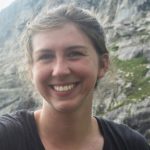 Professor Petersen’s classes have been immensely impactful in understanding sustainability and my own agency as a historical actor embedded within both human and ecological landscapes. I think about the content of her “Western Civilization and Sustainability” class almost every day. In that class, we were challenged to ask questions about what sustainability means in the context of the broad arc of human history and Western civilization. Asking these questions not only helped me make sense of this moment of climate change and ecological collapse, but also led me to grapple with how I personally will choose to use that information in my life going forward. One of the key lessons from the class is the immense power in the stories we tell ourselves about what it means to be human and the legacies of the human-world relationship. These stories profoundly shape how we respond individually and collectively to this moment. We were continually asked us to make connections between our historical analysis and how we would choose to understand and apply it in our own lives, as we all strived to understand what “sustainability” even means and what we want it to mean. This pedagogical strategy fostered my ability to understand and access an empowering narrative of my own agency. This narrative has allowed me to both face and take action to mitigate the grim prospects of our collective ecological crisis with a hope that goes deeper than optimism and is rooted in a historical understanding of the evolving dynamics and immense resiliency of life, both human and more-than-human. No single person can “save the world”. However, carrying the lessons of Professor Petersen’s classes, I know that how I decide to understand the legacy of Western civilization which I have inherited, and the broader human story, is critical to shaping my own agency, which though small is still significant, in building a more sustainable future. – Clara Sims, History and Religious Studies double major (‘19), currently working in sustainable living, bio-regional food systems and wilderness education in Taos, New Mexico.
Professor Petersen’s classes have been immensely impactful in understanding sustainability and my own agency as a historical actor embedded within both human and ecological landscapes. I think about the content of her “Western Civilization and Sustainability” class almost every day. In that class, we were challenged to ask questions about what sustainability means in the context of the broad arc of human history and Western civilization. Asking these questions not only helped me make sense of this moment of climate change and ecological collapse, but also led me to grapple with how I personally will choose to use that information in my life going forward. One of the key lessons from the class is the immense power in the stories we tell ourselves about what it means to be human and the legacies of the human-world relationship. These stories profoundly shape how we respond individually and collectively to this moment. We were continually asked us to make connections between our historical analysis and how we would choose to understand and apply it in our own lives, as we all strived to understand what “sustainability” even means and what we want it to mean. This pedagogical strategy fostered my ability to understand and access an empowering narrative of my own agency. This narrative has allowed me to both face and take action to mitigate the grim prospects of our collective ecological crisis with a hope that goes deeper than optimism and is rooted in a historical understanding of the evolving dynamics and immense resiliency of life, both human and more-than-human. No single person can “save the world”. However, carrying the lessons of Professor Petersen’s classes, I know that how I decide to understand the legacy of Western civilization which I have inherited, and the broader human story, is critical to shaping my own agency, which though small is still significant, in building a more sustainable future. – Clara Sims, History and Religious Studies double major (‘19), currently working in sustainable living, bio-regional food systems and wilderness education in Taos, New Mexico.
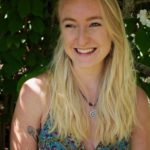 Professor Petersen’s classes have influenced me in not only my interests in paths post-graduation, but also in how I interact with the world. In her class, “Food Justice,” I learned about the overwhelming complexity of our food system and the injustices it perpetuates. We also worked side by side with people in our community working for a more just food system. The hands-on and service learning style of the class exposed me to organizations and people that are fighting in the food justice movement and I began to see myself working in these communities as well. After college, I want to pursue activism work within food justice and climate justice issues. Most recently, I took her class “The Inner Life of Activism,” which has helped to shape the foundational values that will drive my work and engaged me in practices that will allow me to sustain myself and stay healthy in mind, body and spirit. I am extremely grateful for these classes where she has not only taught us about crucial issues facing our generation but has also led by example in her true passion for the subjects and her students. – Arabella Wood (‘20), born and raised in San Francisco Bay Area, currently a senior at Willamette University studying Environmental Science and interested in pursuing climate and food justice.
Professor Petersen’s classes have influenced me in not only my interests in paths post-graduation, but also in how I interact with the world. In her class, “Food Justice,” I learned about the overwhelming complexity of our food system and the injustices it perpetuates. We also worked side by side with people in our community working for a more just food system. The hands-on and service learning style of the class exposed me to organizations and people that are fighting in the food justice movement and I began to see myself working in these communities as well. After college, I want to pursue activism work within food justice and climate justice issues. Most recently, I took her class “The Inner Life of Activism,” which has helped to shape the foundational values that will drive my work and engaged me in practices that will allow me to sustain myself and stay healthy in mind, body and spirit. I am extremely grateful for these classes where she has not only taught us about crucial issues facing our generation but has also led by example in her true passion for the subjects and her students. – Arabella Wood (‘20), born and raised in San Francisco Bay Area, currently a senior at Willamette University studying Environmental Science and interested in pursuing climate and food justice.
My [Bill Davis] WMU undergraduate BFA students were assigned to photograph light pollution in their communities. Because there is a strong need for artists to consider their impact, students were asked to track, as much as possible, their environmental, social, and economic activity perceived as both positive and negative– as both artists and consumers. Light pollution was the subject matter but creative practice was the cornerstone. More in depth research can be found in the upcoming MAHB blog. Some summarized answers follow.
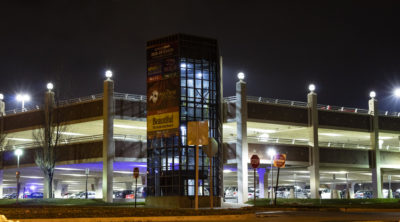
“I do feel that we need to have more conversations about light pollution so that we can develop more empathy…..I would say that my overall health increased during this project because I experienced more. Photographing light at night is a kind of meditative process.” – Ian Webb – WMU Frostic School of Art Photo and Intermedia Major (2017)
“I must partake in this consumerist culture to gain financial independence so that I can later support my own prosperity” -Photo and Intermedia and Intermedia Major
“Hypocrisy cannot be removed from everything. It isn’t right to do things then tell others not to do those same things just as it is right to do things then tell others to not do those things.” –Sculpture Major
“I would like to see photography become more sustainable in the artificial lighting department. It can be more energy efficient. If an alternative could be developed in the mining of minerals for consumer-level production, then that could be a giant boom– not only to environmental sustainability but to human rights conditions. -Sculpture Major
“I would like to see more efficient infrastructure developments, such as improve battery technology and less resource-intensive printing methods in terms of resin coated papers and optical brighteners that produce hazardous waste.” – Photo and Intermedia Major
The views and opinions expressed through the MAHB Website are those of the contributing authors and do not necessarily reflect an official position of the MAHB. The MAHB aims to share a range of perspectives and welcomes the discussions that they prompt.

